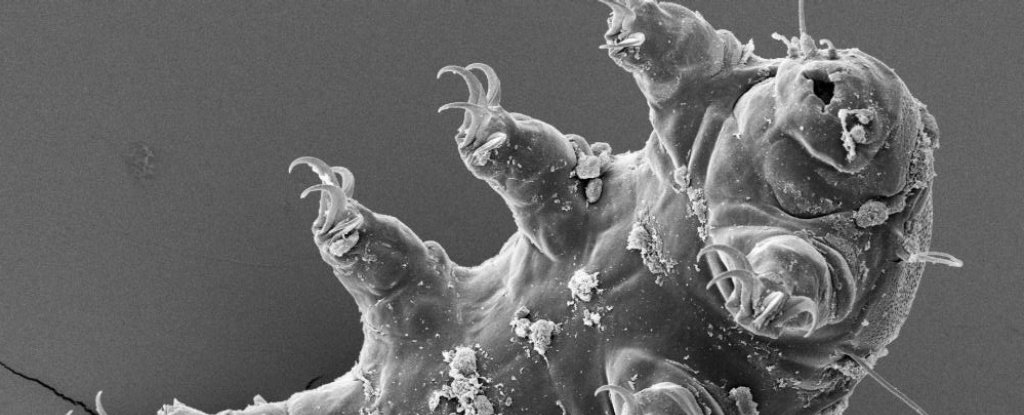A lunar probe launched by a private company in Israel last spring crashed onto the lunar surface. 13 miles from the surface, the probe successfully took a selfie. 6.8 miles from the surface, something went wrong and the probe crashed. However since then, it has been revealed that the probe had some special cargo on board. The probe had a cylinder of nickel disks, and in between the disks microscopic organisms were dehydrated and suspended in the epoxy. This method ensured the arrival of the organisms despite the crash. The called tardigrades, can survive dormantly in extreme conditions with no atmosphere and extreme temperatures. Should the tardigrades get rehydrated, they will revive and thrive.
 Tardigrades live in water and are known as Earth’s most durable creatures because they can live in extreme environments, even space, and they can go into hibernation to survive having no access to food or water. A horde of microscopic critters called tardigrades were passengers aboard the Israeli spacecraft Beresheet, which crashed into the lunar surface nearly four months ago. But because tardigrates can survive in extreme environments, it's likely these tiny astronauts are still alive. Tardigrades are also known as water bears or moss piglets – apt nicknames, considering that these organisms look like eight-legged potatoes with scrunched up faces and tiny claws under a microscope. Dehydrated tardigrades were placed aboard the Beresheet spacecraft by a non-profit company called the Arch Mission Foundation, which aims to develop a kind of backup of Earth. In keeping with that mission, the company put a "lunar library" – a DVD-like disc containing a digital archive of nearly every English Wikipedia page, along with ebooks and human DNA samples – onboard the spacecraft. Thousands of tardigrades were attached to that library.
Tardigrades live in water and are known as Earth’s most durable creatures because they can live in extreme environments, even space, and they can go into hibernation to survive having no access to food or water. A horde of microscopic critters called tardigrades were passengers aboard the Israeli spacecraft Beresheet, which crashed into the lunar surface nearly four months ago. But because tardigrates can survive in extreme environments, it's likely these tiny astronauts are still alive. Tardigrades are also known as water bears or moss piglets – apt nicknames, considering that these organisms look like eight-legged potatoes with scrunched up faces and tiny claws under a microscope. Dehydrated tardigrades were placed aboard the Beresheet spacecraft by a non-profit company called the Arch Mission Foundation, which aims to develop a kind of backup of Earth. In keeping with that mission, the company put a "lunar library" – a DVD-like disc containing a digital archive of nearly every English Wikipedia page, along with ebooks and human DNA samples – onboard the spacecraft. Thousands of tardigrades were attached to that library.Credits:
https://www.newsweek.com/tardigrades-moon-scientists-1454019

No comments:
Post a Comment